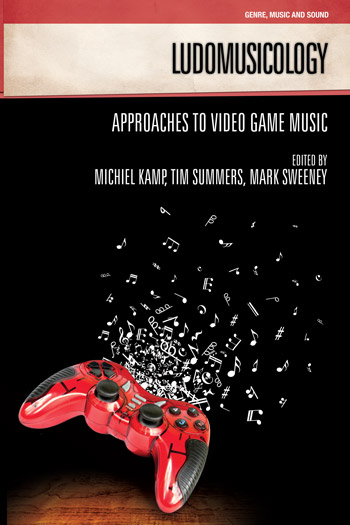Palimpsest, Pragmatism and the Aesthetics of Genre Transformation: Composing the Hybrid Score to Electronic Arts’ 'Need for Speed Shift 2: Unleashed'
Ludomusicology - Approaches to Video Game Music - Michiel Kamp
Stephen Baysted [+]
University of Chichester
Description
Shift 2 Unleashed (Slightly Mad/EA, 2011) is a video racing game and its unique hybrid score renegotiates and re-imagines ‘chart-topping’ anthemic rock songs from ten bands in the US, Canada and the UK. The score fuses contemporary cinematic orchestral language, distorted electronica and pioneering post-production and sound design techniques. The score’s primary objective and function is, unusually for the racing game genre, a narrative one – seeking as it does to both describe the ‘real’ racing driver’s emotional and psychological journey and by representing and enhancing the concomitant experiences of the game player. The score operates by consciously referencing the musical, orchestrational and productional vocabulary and values from key Hollywood film and trailer genres, and these vocabularies inform and guide the transformation of the songs into fully-fledged cinematic musical productions. The game player then identifies emotionally with the music via the well understood processes of associative reception and reader response. The compositional process involved deconstructing the original recorded song ‘stems’ provided by record companies, identifying and isolating iconic song ‘fingerprints’ (quintessential elements of musical material that would permit the original song, like the written-over layer in a palimpsest, to be partially audible when the transformation was complete), and subjecting the resultant material to a variety of operations. These musical operations included reharmonisation, reorchestration (from vocals, guitars and drums, to full orchestra plus electronic sound sources and sound design elements), metrical reframing, tempo alteration, resynthesis and resampling, and genre transformation. As a composer, audio director and sound designer of the game, I will report from first-hand experience. The first section of the chapter will explore the underlying aesthetic objectives of the music and its compositional processes; the second section will give unique insights into the commercial tensions inherent in the production of a AAA game franchise and their impact on creative musical interventions; and the closing section will examine how the score functions as a cohesive, unifying and immersive force governing the player’s emotional responses.






